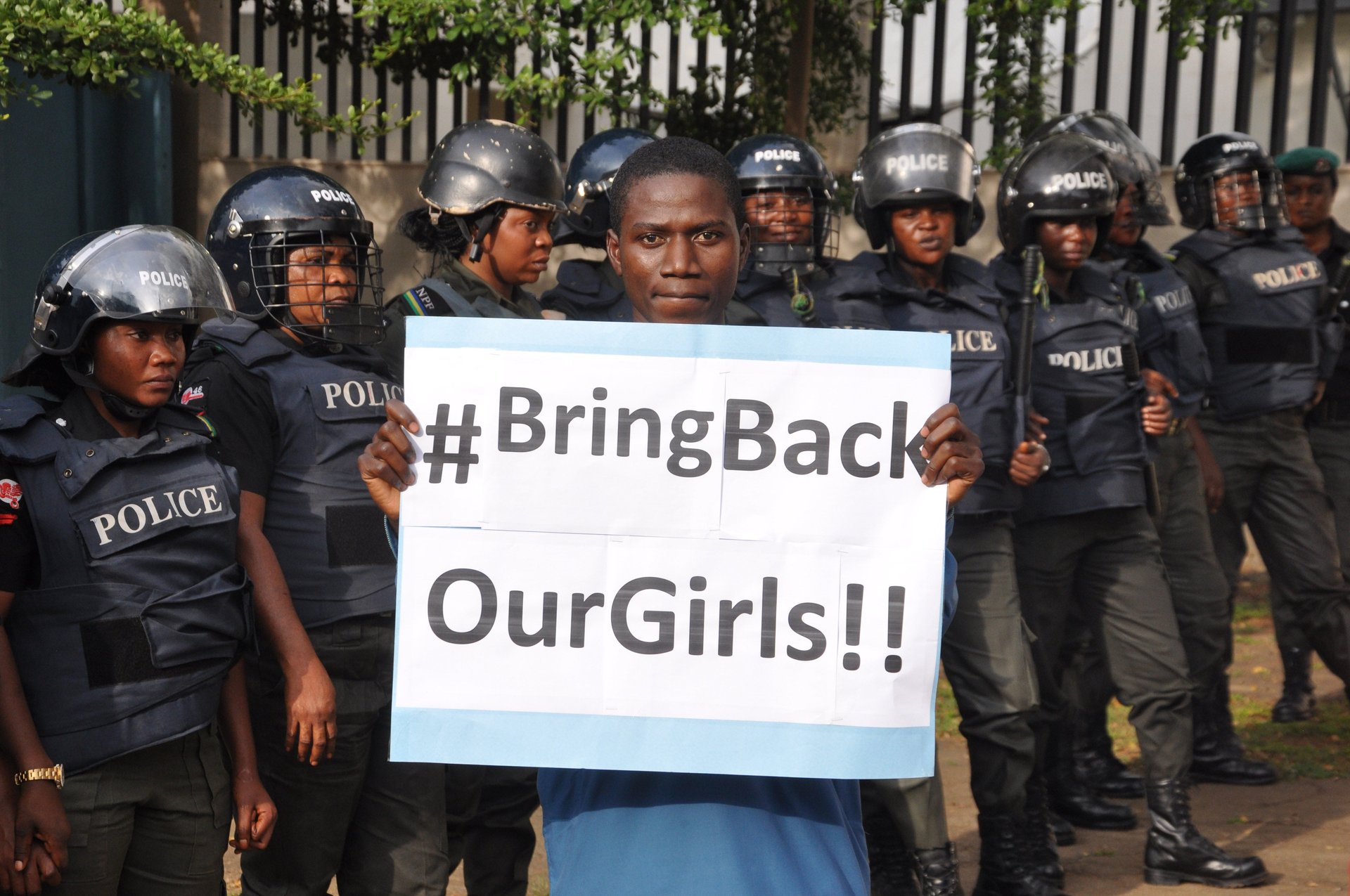Nigeria is disputing reports it released Boko Haram militants for the freedom of 21 Chibok girls
The release of 21 girls held hostage by Boko Haram has prompted some uncomfortable questions for the Nigerian government. Chief among them: what exactly was given in exchange for their freedom?


The release of 21 girls held hostage by Boko Haram has prompted some uncomfortable questions for the Nigerian government. Chief among them: what exactly was given in exchange for their freedom?
Nigeria’s presidential spokesman said the release, announced yesterday (Oct 13) was “the outcome of negotiations“ between the administration and the militant group, brokered by the International Red Cross and the Swiss government. But the government has denied that it gave anything in exchange for the girls who were captured more than two years ago from the northeastern town of Chibok, including Boko Haram prisoners or ransom.
“This is not a swap, but a release,” Lai Mohammed, Nigeria’s minister of information and culture, told journalists yesterday. Mohammed said the release was a good faith measure and “the product of painstaking negotiations and trust on both sides.” Mohammed added, “The release of these girls does not mean an end to military operations, but it is a new phase in the war against insurgency.”
Multiple reports suggest a different reality. Citing military sources, Nigerian newspaper Premium Times claims the girls were exchanged for four Boko Haram members captured by Nigerian forces. According to the Associated Press, four detained Boko Haram leaders were exchanged. The possibility of an exchange is high given that Boko Haram has previously said the only condition under which it would consider releasing the girls is an exchange for its imprisoned members.
A government spokesman has said that negotiations will continue over the release of the remaining girls. The Bring Back Our Girls campaign, made up of parents and other activists, says that 276 girls were taken. To secure their release the Nigerian government may have to give up even more imprisoned Boko Haram commanders.